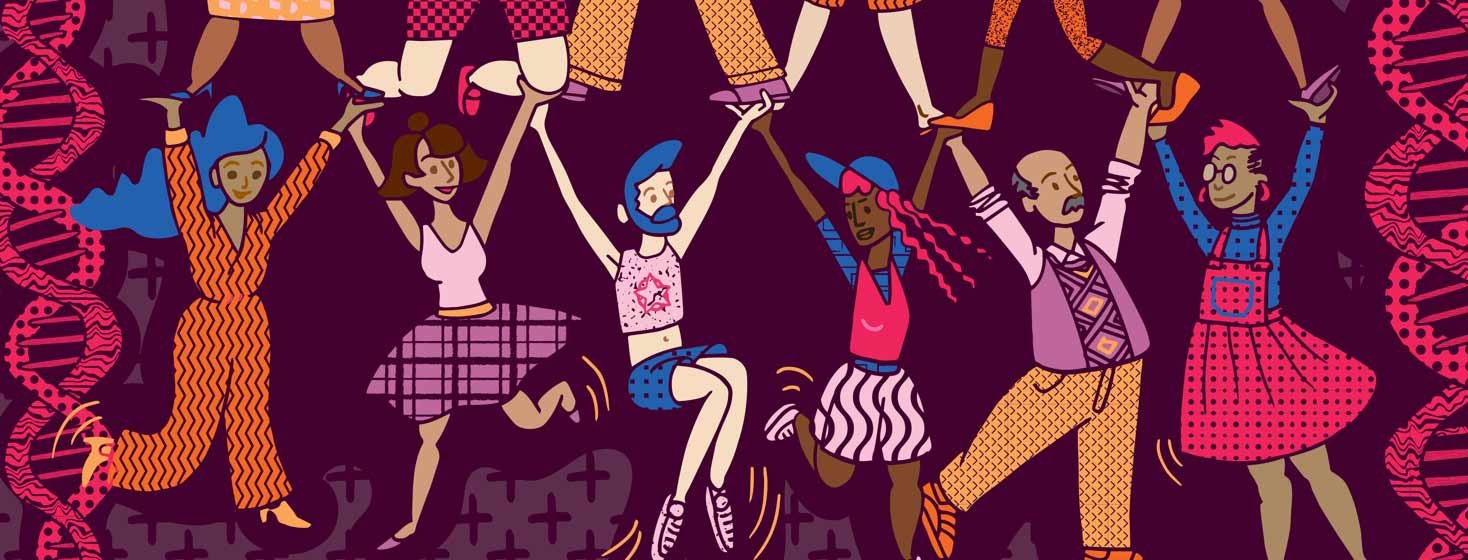FDA Approves First Human Trials for HIV Cure
The U.S. Food and Drug Administration (FDA) has approved the start of Phase 1 of the first human clinical trial for the gene therapy AGT103-T to cure HIV. AGT103-T is a single-dose, lentiviral vector-based gene therapy.1,2
Phase 1 of the AGT clinical trial will:1
- Investigate the safety of the gene therapy
- Measure important biomarkers (medical signs that can be measured in people, such as disease progression)
- Explore surrogate markers of efficacy (guidelines that are used to assess how well a drug is working)
This approval is noteworthy because so far, efforts to cure HIV have been unsuccessful. Researchers studying AGT103-T believe this gene therapy shows promise as a cure.1
How gene therapy works
The goal of AGT103-T is to repair the immune system that was damaged by HIV and allow natural immune responses to help control the virus. This gene therapy is a cell product made from blood cells that uses an 11-day process to help increase the T-cells that fight HIV. It uses gene therapy to help these specific cells survive.2
HIV is characterized by chronic virus replication, as well as gradual destruction of CD4 T lymphocytes. AGT103-T is a cell product that is made from HIV-specific CD4 T cells that are resistant to viral-caused destruction and infection. If these lymphocytes are not destroyed, the immune system can be strengthened and help fight the virus.3
In the lab, AGT103-T showed the ability to clear itself of HIV. When challenged with human HIV cells, the gene therapy was also able to clear the virus.2
Importance for people living with HIV
Worldwide, nearly 40 million people are living with HIV/AIDS. In the United States, more than 1 million people currently live with HIV/AIDS.
Currently, there is no cure for HIV. In addition, antiretroviral therapy (ART) can be expensive and hard on the body. If this potential cure is safe and effective, this could change people’s lives forever.1,2
What's next with the Phase 1 clinical trial?
Initial trial sites for this Phase 1 clinical trial are located in and around Baltimore, Md., and Washington, D.C. Researchers are expected to start enrolling participants in the study in September 2020.
A Phase 1 clinical trial is usually the first part of a clinical trial that uses human participants. The main goal of Phase 1 is to find the highest dose of treatment that can be safely given without significant side effects. It can also help determine the best way for the treatment to be given.
This phase does carry a high amount of risk compared to the next phases. But, participants are informed about the possible risks and are carefully monitored.1
Hope for data by the end of the year
Researchers hope that the initial data of Phase 1 will be reported by the end of the year. Based on that data, more information about the clinical trial, phases, and expected timelines will likely be developed and reported.1
When will this be approved?
After Phase 1 of a clinical trial, there are still 3 more phases before the drug can be approved. Drugs can be approved for the general public after Phase III. Then, Phase IV trials test these newly approved drugs in a larger population.
While it may be a while before this drug ever reaches the general public, this is promising news for those living with HIV. If you are interested in participating in a clinical trial should one be offered near you, talk with your doctor about whether that is a possibility for you.

Join the conversation